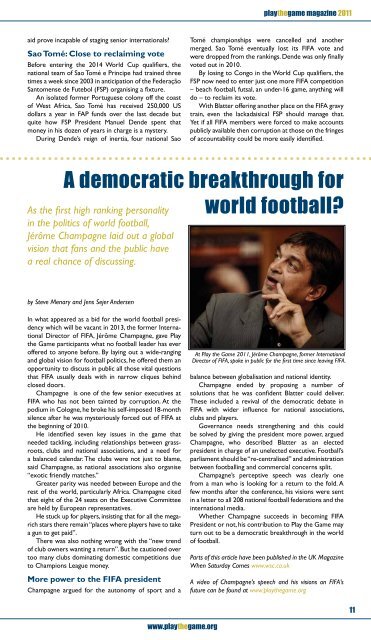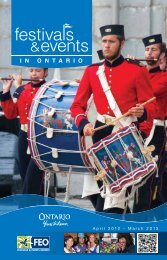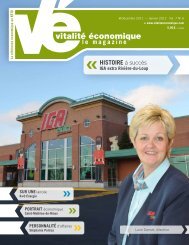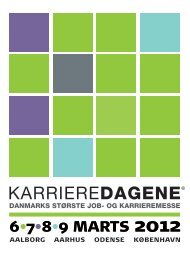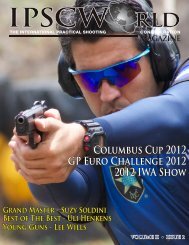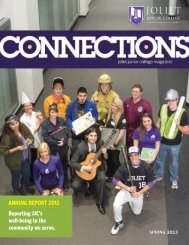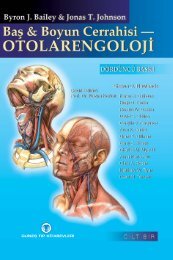playthegame - UniFlip
playthegame - UniFlip
playthegame - UniFlip
Create successful ePaper yourself
Turn your PDF publications into a flip-book with our unique Google optimized e-Paper software.
aid prove incapable of staging senior internationals?<br />
Sao Tomé: Close to reclaiming vote<br />
Before entering the 2014 World Cup qualifiers, the<br />
national team of Sao Tomé e Principe had trained three<br />
times a week since 2003 in anticipation of the Federação<br />
Santomense de Futebol (FSP) organising a fixture.<br />
An isolated former Portuguese colony off the coast<br />
of West Africa, Sao Tomé has received 250,000 US<br />
dollars a year in FAP funds over the last decade but<br />
quite how FSP President Manuel Dende spent that<br />
money in his dozen of years in charge is a mystery.<br />
During Dende’s reign of inertia, four national Sao<br />
Tomé championships were cancelled and another<br />
merged. Sao Tomé eventually lost its FIFA vote and<br />
were dropped from the rankings. Dende was only finally<br />
voted out in 2010.<br />
By losing to Congo in the World Cup qualifiers, the<br />
FSP now need to enter just one more FIFA competition<br />
– beach football, futsal, an under-16 game, anything will<br />
do – to reclaim its vote.<br />
With Blatter offering another place on the FIFA gravy<br />
train, even the lackadaisical FSP should manage that.<br />
Yet if all FIFA members were forced to make accounts<br />
publicly available then corruption at those on the fringes<br />
of accountability could be more easily identified.<br />
A democratic breakthrough for<br />
world football?<br />
As the first high ranking personality<br />
in the politics of world football,<br />
Jérôme Champagne laid out a global<br />
vision that fans and the public have<br />
a real chance of discussing.<br />
by Steve Menary and Jens Sejer Andersen<br />
In what appeared as a bid for the world football presidency<br />
which will be vacant in 2013, the former International<br />
Director of FIFA, Jérôme Champagne, gave Play<br />
the Game participants what no football leader has ever<br />
offered to anyone before. By laying out a wide-ranging<br />
and global vision for football politics, he offered them an<br />
opportunity to discuss in public all those vital questions<br />
that FIFA usually deals with in narrow cliques behind<br />
closed doors.<br />
Champagne is one of the few senior executives at<br />
FIFA who has not been tainted by corruption. At the<br />
podium in Cologne, he broke his self-imposed 18-month<br />
silence after he was mysteriously forced out of FIFA at<br />
the beginning of 2010.<br />
He identified seven key issues in the game that<br />
needed tackling, including relationships between grassroots,<br />
clubs and national associations, and a need for<br />
a balanced calendar. The clubs were not just to blame,<br />
said Champagne, as national associations also organise<br />
“exotic friendly matches.”<br />
Greater parity was needed between Europe and the<br />
rest of the world, particularly Africa. Champagne cited<br />
that eight of the 24 seats on the Executive Committee<br />
are held by European representatives.<br />
He stuck up for players, insisting that for all the megarich<br />
stars there remain “places where players have to take<br />
a gun to get paid”.<br />
There was also nothing wrong with the “new trend<br />
of club owners wanting a return”. But he cautioned over<br />
too many clubs dominating domestic competitions due<br />
to Champions League money.<br />
More power to the FIFA president<br />
Champagne argued for the autonomy of sport and a<br />
www.<strong>playthegame</strong>.org<br />
<strong>playthegame</strong> magazine 2011<br />
At Play the Game 2011, Jérôme Champagne, former International<br />
Director of FIFA, spoke in public for the first time since leaving FIFA.<br />
balance between globalisation and national identity.<br />
Champagne ended by proposing a number of<br />
solutions that he was confident Blatter could deliver.<br />
These included a revival of the democratic debate in<br />
FIFA with wider influence for national associations,<br />
clubs and players.<br />
Governance needs strengthening and this could<br />
be solved by giving the president more power, argued<br />
Champagne, who described Blatter as an elected<br />
president in charge of an unelected executive. Football’s<br />
parliament should be “re-centralised” and administration<br />
between footballing and commercial concerns split.<br />
Champagne’s perceptive speech was clearly one<br />
from a man who is looking for a return to the fold. A<br />
few months after the conference, his visions were sent<br />
in a letter to all 208 national football federations and the<br />
international media.<br />
Whether Champagne succeeds in becoming FIFA<br />
President or not, his contribution to Play the Game may<br />
turn out to be a democratic breakthrough in the world<br />
of football.<br />
Parts of this article have been published in the UK Magazine<br />
When Saturday Comes www.wsc.co.uk<br />
A video of Champagne’s speech and his visions on FIFA’s<br />
future can be found at www.<strong>playthegame</strong>.org<br />
11


